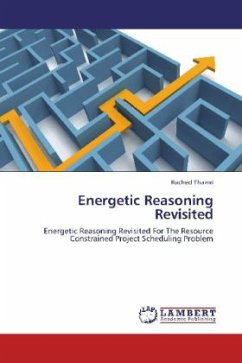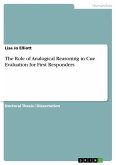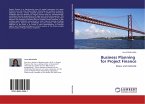In such an economic environment, the key functions of the success for the industrial companies lie in their abilities to produce the required items at the right time and with the lowest possible cost. One of the main key functions to satisfy this harsh constraints are the production planning and scheduling. The resource constrained project scheduling problem is one of these key functions. The RCPSP is widely known to be notoriously difficult to solve due to the lack of lower bounds that are both tight and fast. In this book, we propose several new lower bounds that are based on the concept of energetic reasoning. A major contribution of this work is to investigate several enhanced new feasibility tests that prove useful for deriving new lower bounds that consistently outperform the classical energetic reasoning-based lower bound. These enhanced versions are called the energetic reasoning revisited and the global view one.
Bitte wählen Sie Ihr Anliegen aus.
Rechnungen
Retourenschein anfordern
Bestellstatus
Storno








